Extreme Food: Unusual Foods From Across The World
Life is not only about rice and curry. Different countries and regions have unusual delicacies that may cause your stomach to churn, but are considered delicacies by the locals. Think you have what it takes to stomach these local delights?
Life is not only about rice and curry. Different countries and regions have unusual delicacies that may cause your stomach to churn, but are considered delicacies by the locals. Think you have what it takes to stomach these local delights?
Warning: Even non vegetarians may find it repulsive! But food for some may not be food for all¡
*Image courtesy Reuters


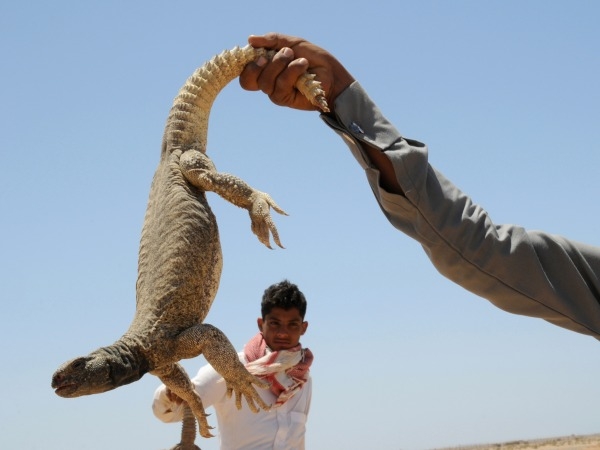
Extreme Food: Unusual Foods from Across the World
A man eats part of an Uromastyx lizard, also known as a dabb lizard, in a desert near Tabuk. The lizards, which are considered a delicacy in some parts of the Middle East, are caught in the spring season using hooks and sniffer dogs as well as bare hands. The lizards can be grilled or eaten raw, and according to popular belief, their blood is used to strengthen the body and treat diseases.
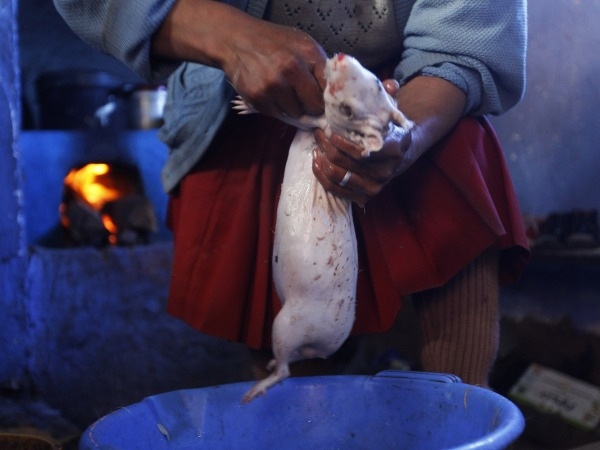
Extreme Food: Unusual Foods from Across the World
Octavia Ccahuata prepares a guinea pig for cooking in her kitchen, which is fitted with cooking equipment that saves energy and reduces smoke emission as part of the "Hot Clean House" ecology project in the Andean town of Langui in Cuzco. The Pontifical Catholic University of Peru (PUCP) developed the "Hot Clean House" project, which uses solar power to warm houses and energy-saving technologies for cooking to counter extreme cold weather in the highlands. These technologies have been implemented in communities in the highlands of Cuzco.
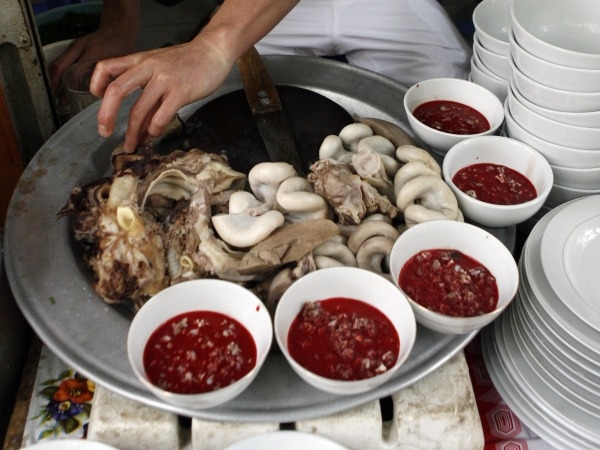
Extreme Food: Unusual Foods from Across the World
A raw blood dish is displayed with cooked entrails at a restaurant in Hanoi. Frozen pudding from fresh duck or pig blood is a popular dish in the Southeast Asian country although duck blood is less consumed following bird flu outbreaks that have killed at least 55 Vietnamese since late 2003. In Vietnam, there appeared to be a degree of confusion towards swine flu which is not in fact linked to pigs alone, but an assortment of swine, human and avian viruses. One bowl of raw blood costs VND10,000 ($0.55)
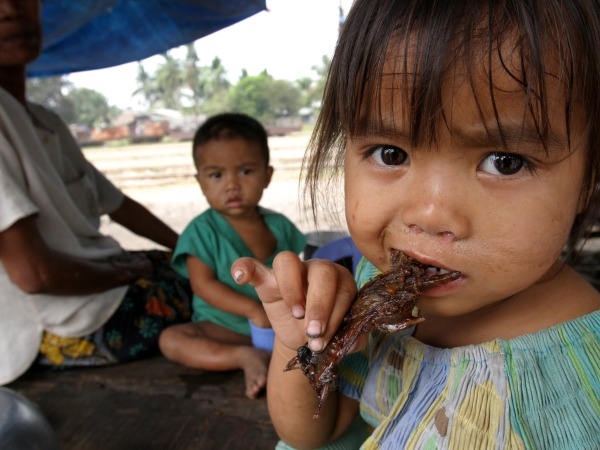
Extreme Food: Unusual Foods from Across the World
San Smey, 4, eats a piece of roasted rat in the provincial town of Battambang, 290 km (181 miles) northwest of the capital Phnom Penh. With meat-eaters shying away from chicken because of the deadly bird flu virus rampant across Asia, sales of rat are rocketing in the impoverished southeast Asian nation.
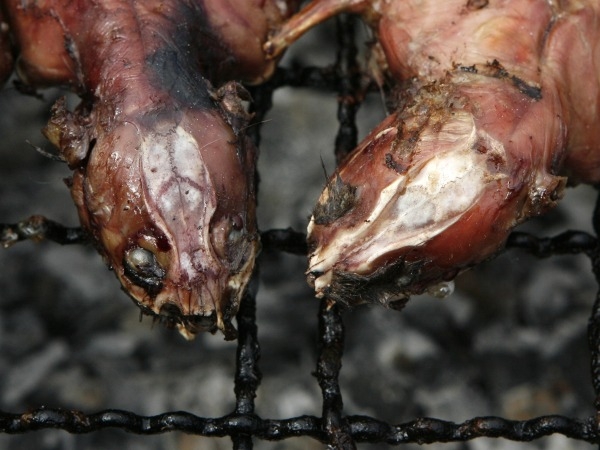
Extreme Food: Unusual Foods from Across the World
Grilled rats are displayed for sale in Suphan Buri province, 120 km (75 miles) north of Bangkok. Once struggling to make ends meet in pest-infested villages, Thai rice farmers are now making money out of the very scourge that has gnawed at their finances, rats. Thailand is the world's biggest rice exporter and roasted bandicoot rat has become a popular delicacy at roadside stalls despite costing twice as much as pork or chicken.
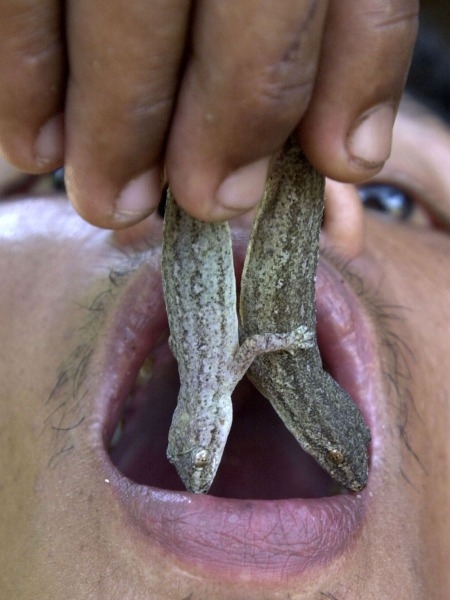
Extreme Food: Unusual Foods from Across the World
Thai farm employee Somsak Inta, 36, puts two house lizards in his mouth prior to eating them in Nakorn Nayok province, 60 kilometres away from Bangkok. Somsak started eating lizards when he was 16 as a means to treat health problems, which he claims could not be cured by modern medicine. He has since been eating lizards for over 20 years, believing, among other things, it increases his sex drive.
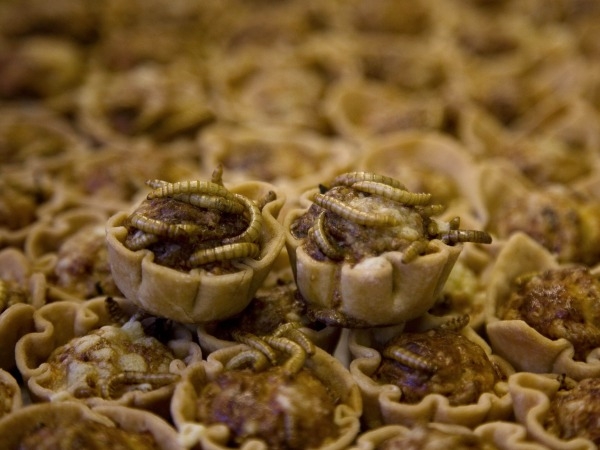
Extreme Food: Unusual Foods from Across the World
Mealworm quiches are seen at the Rijn IJssel school for chefs in Wageningen. All you need to do to save the rainforest, improve your diet, better your health, cut global carbon emissions and slash your food budget is eat bugs. Mealworm quiche, grasshopper springrolls and cuisine made from other creepy crawlies is the answer to the global food crisis, shrinking land and water resources and climate-changing carbon emissions, Dutch scientist Arnold van Huis says. To attract more insect-eaters, Van Huis and his team of scientists at Wageningen have worked with a local cooking school to produce a cookbook and suitable recipes.
